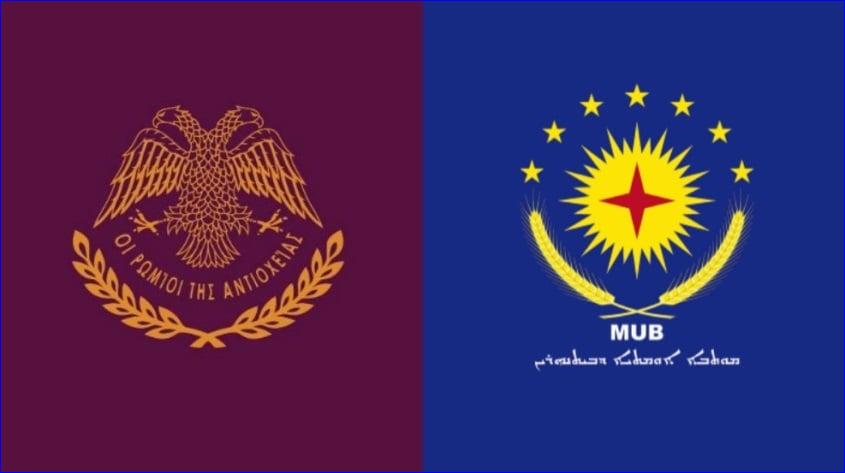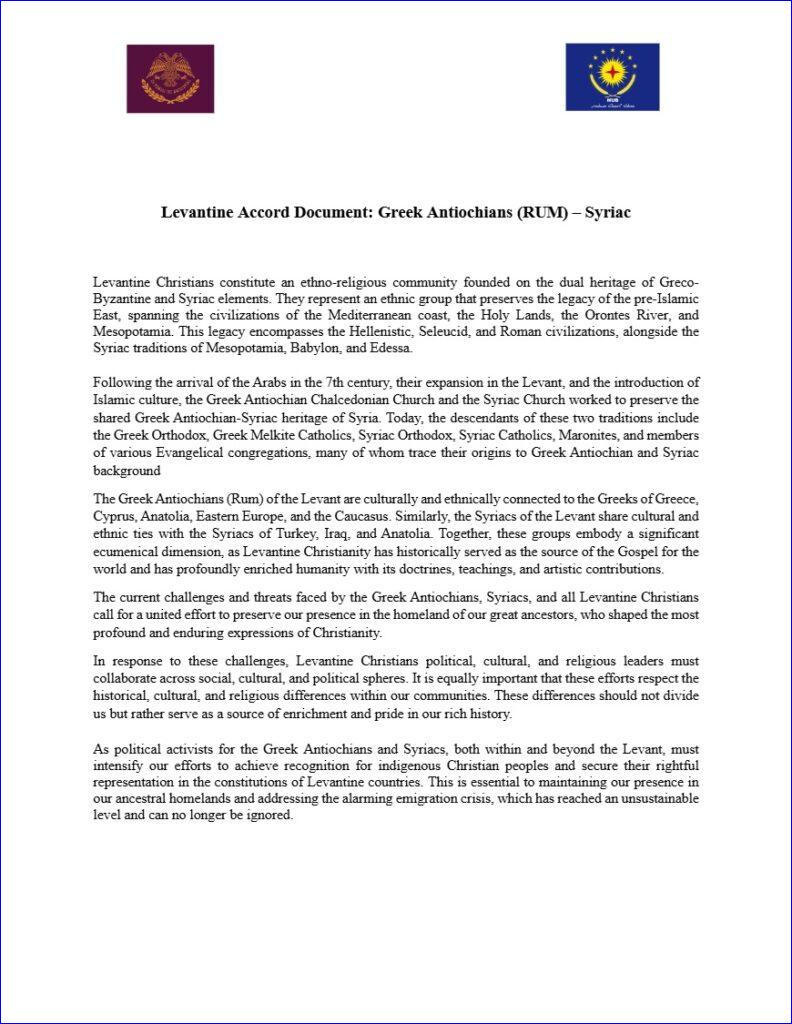


Representing a legacy that spans ancient Hellenistic, Seleucid, Roman, and Syriac civilisations, this community includes Greek Orthodox, Greek Melkite Catholics, Syriac Orthodox, Syriac Catholics, Maronites, and Evangelicals, whose shared heritage underscores their cultural and religious richness.
In the statement, the organisations highlighted the deep historical and cultural connections of the Greek Antiochians with Greeks across the Mediterranean and the Syriacs with communities in Turkey, Iraq, and Anatolia.
They emphasised the ecumenical significance of Levantine Christianity, which has profoundly influenced global Christianity through its teachings and artistic contributions.
Amid ongoing crises, including violence, instability in Syria, and an alarming emigration trend, Levantine Christians are calling for greater political recognition and representation in their ancestral homelands. The statement urged collaboration among political, cultural, and religious leaders to protect their communities while respecting internal diversity.
During the 2024 Christmas period, the organisations extended wishes of peace, love, and unity, emphasising the need for solidarity to secure a brighter future. The message concluded with a renewed commitment to preserving their rich legacy and building resilience against the challenges they face.
"The current challenges and threats faced by the Greek Antiochians, Syriacs, and all Levantine Christians call for a united effort to preserve our presence in the homeland of our great ancestors, who shaped the most profound and enduring expressions of Christianity," the statement said.
"In response to these challenges, Levantine Christians political, cultural, and religious leaders must collaborate across social, cultural, and political spheres. It is equally important that these efforts respect the historical, cultural, and religious differences within our communities. These differences should not divide us but rather serve as a source of enrichment and pride in our rich history," the statement continued.
"As political activists for the Greek Antiochians and Syriacs, both within and beyond the Levant, must intensify our efforts to achieve recognition for indigenous Christian peoples and secure their rightful representation in the constitutions of Levantine countries. This is essential to maintaining our presence in our ancestral homelands and addressing the alarming emigration crisis, which has reached an unsustainable level and can no longer be ignored," it concluded.


or register to post a comment.